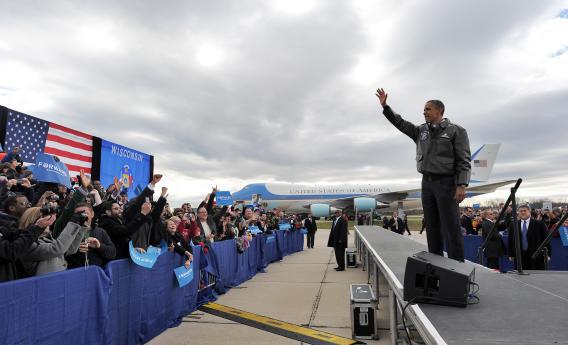In the course of endorsing Barack Obama largely for the not-very-sound reason that Mitt Romney would make the budget deficit too big, the editors of The Economist offer this attack on the Obama record—he’s hurt the delicate feelings of business executives:
It is here that our doubts about Mr Obama set in. No administration in many decades has had such a poor appreciation of commerce. Previous Democrats, notably Bill Clinton, raised taxes, but still understood capitalism. Bashing business seems second nature to many of the people around Mr Obama. If he has appointed some decent people to his cabinet—Hillary Clinton at the State Department, Arne Duncan at education and Tim Geithner at the Treasury—the White House itself has too often seemed insular and left-leaning.
The complaint that Obama’s appointees are too anti-business with the exception of the people in charge of economic policy, foreign policy, and education seems like a strange one to make. Is the concern that David Petraeus is spending too much time bashing business at the CIA? But more broadly this idea that sound economic policy derives from palling around with job creators is one of the most pernicious myths out there today. And when you think about it, it undermines the whole logic of capitalism. The Soviet Union desperately needed politicians who understood agriculture, industry, and commerce because Soviet politicians were running the whole economy. In America we don’t do that. What the president has to do well is the things that he’s in charge of—being the single strongest voice in public policy disputes.
I think the best example of this is the first term of Franklin Delano Roosevelt. Businessmen really didn’t like the guy. But the economy grew like crazy during his first four or five years in office:
Why was there such strong growth? Primarily because FDR took the United States off the gold standard. That was a great idea, though it was much-criticized by business elites at the time. Tellingly, even when the policies were clearly working and the economy was growing again after years of collapse, businessmen didn’t change their mind about FDR. Which doesn’t show that they’re bad people or bad businessmen, simply that they were really bad at public policy analysis. Which is fine, because just as we wisely don’t have politicians running businesses we also wisely don’t have businessmen running the government.
The fact that you may have brilliant ideas about running a large retail chain or marketing sneakers or selling medical supplies doesn’t mean you know how to make economic policy, and making economic policy doesn’t require you to make friends with the guy who runs the large retail chain.
If you look at it, I think you’ll find that the worst moments of Obama’s tenure in office largely coincided with the period in 2011 when the administration made Bill Daley chief of staff and was positively obsessed with courting the subjective psychology of executives rather than on making the best possible substantive policy. It’s worth recalling that as misty-eyed as businessmen and the Economist can get today about the good old days of moderate Bill Clinton, at the time they hated Bill Clinton. The Economist itself endorsed both Bob Dole in 1996 and Al Gore in 2000.
